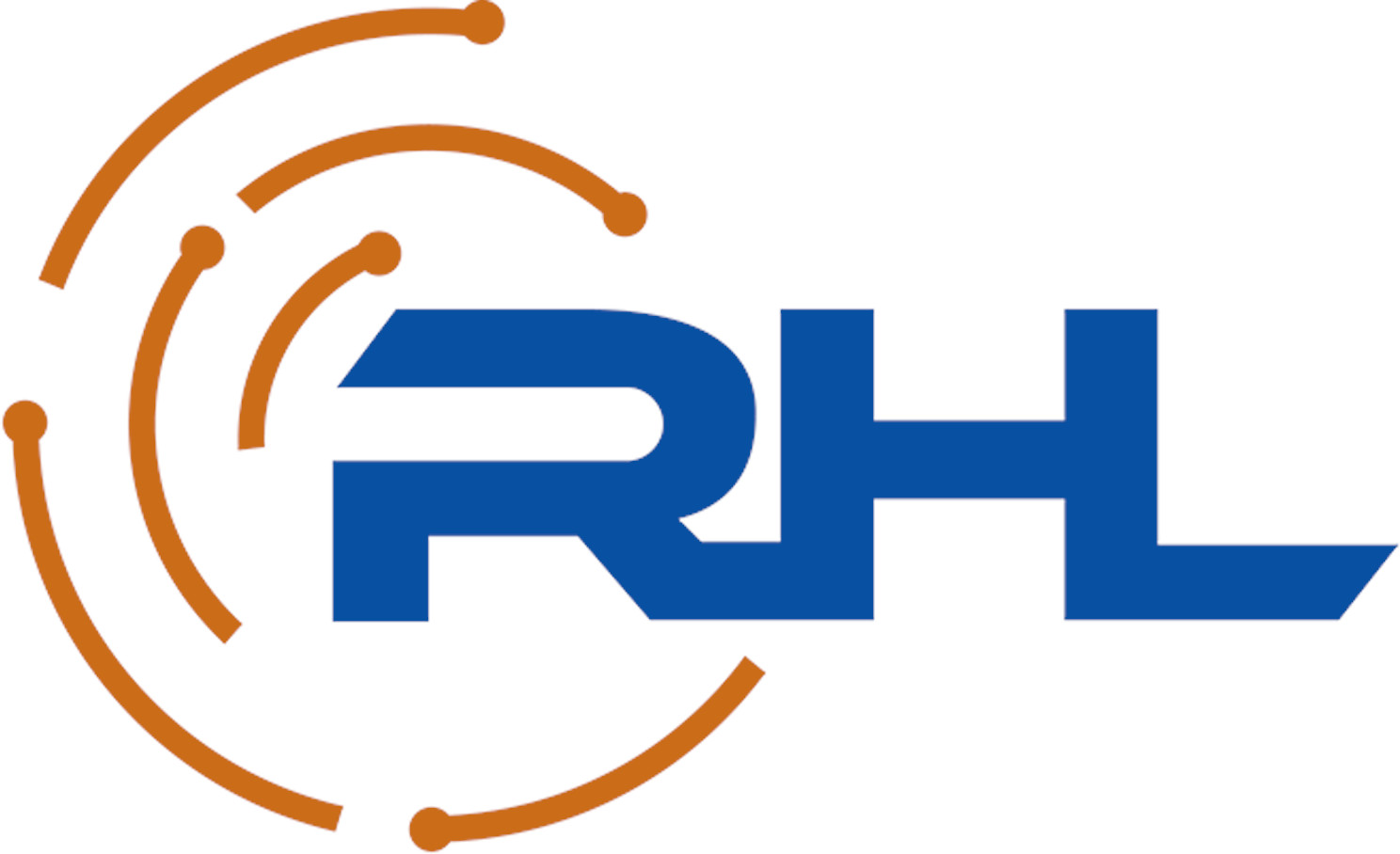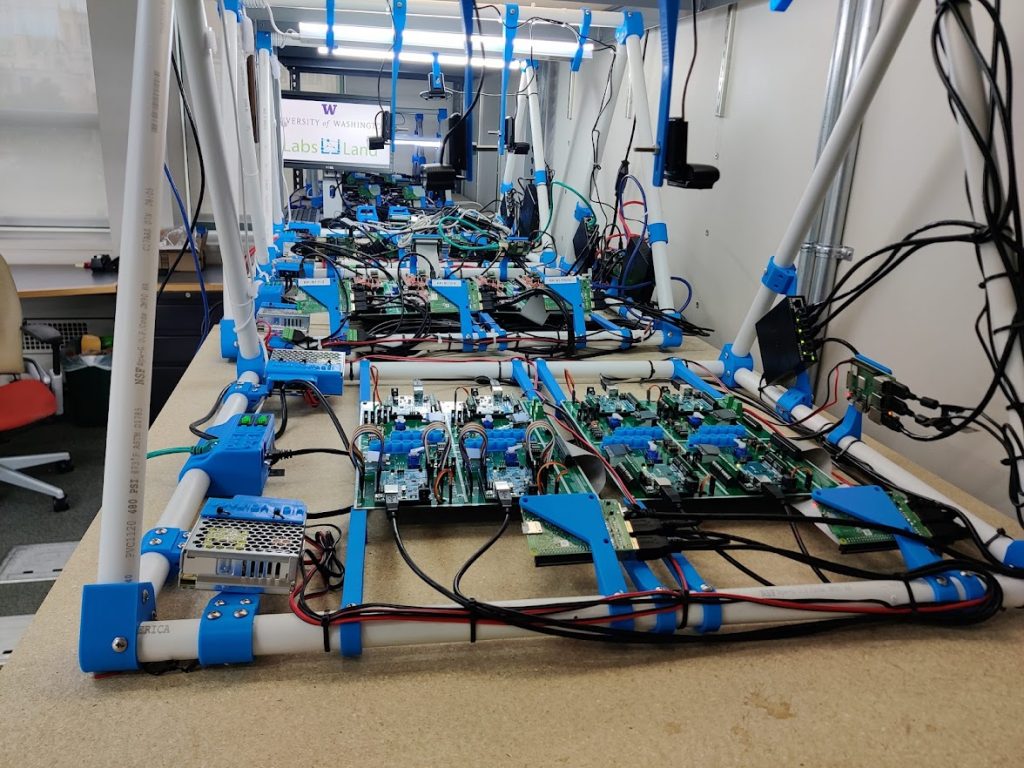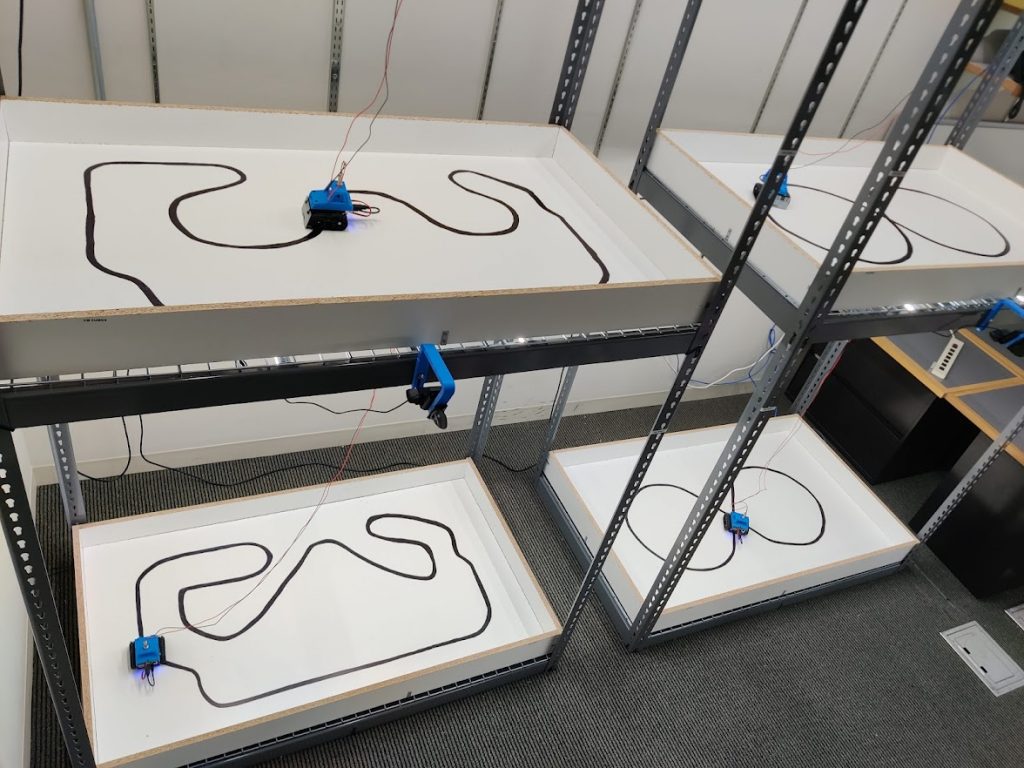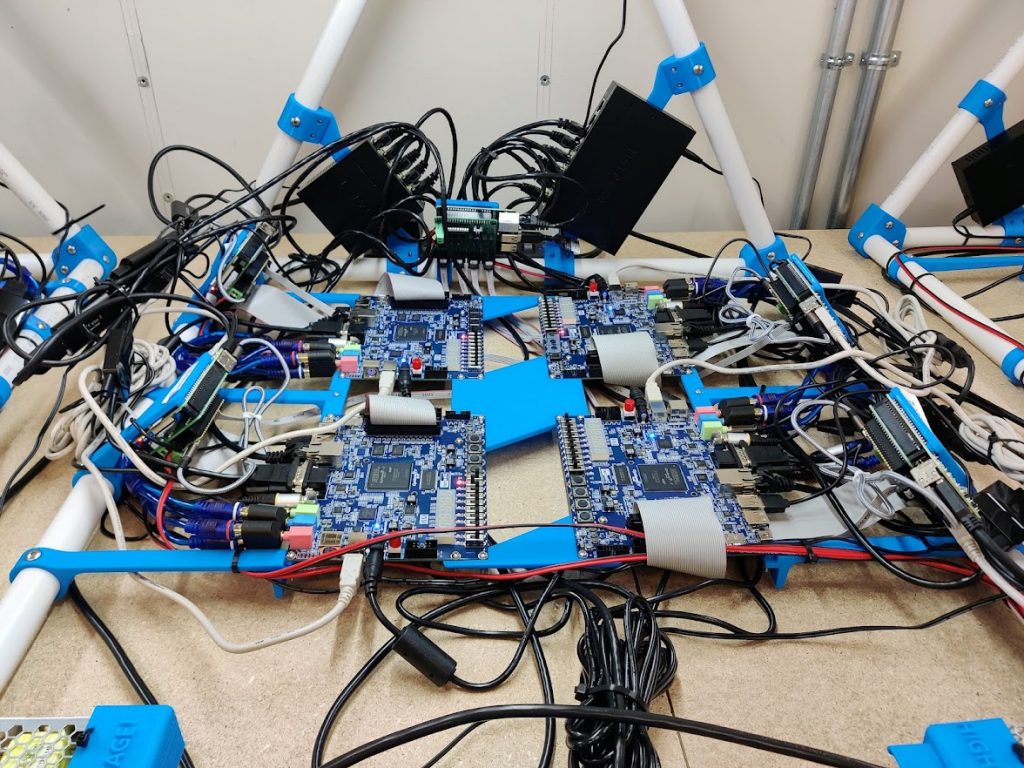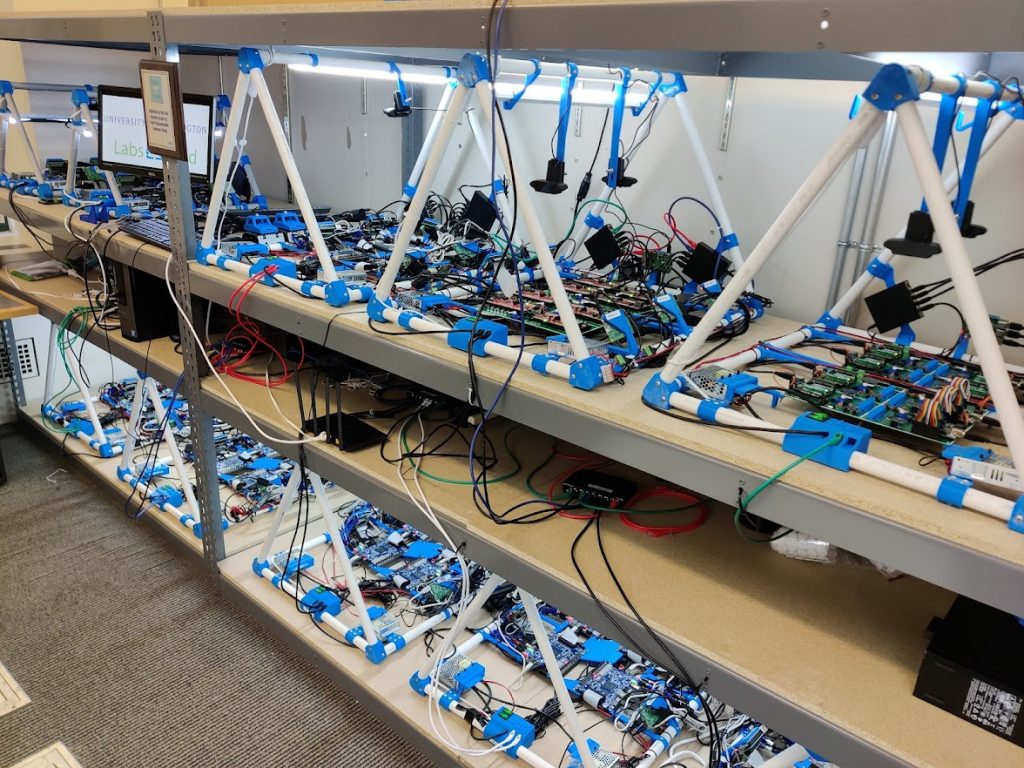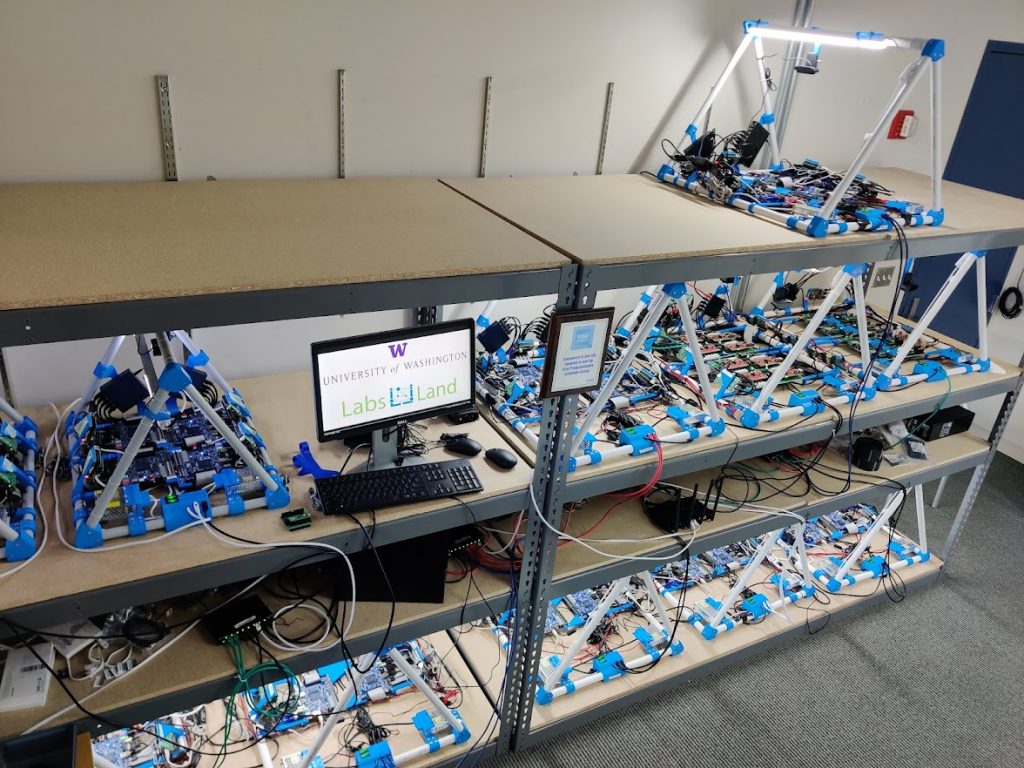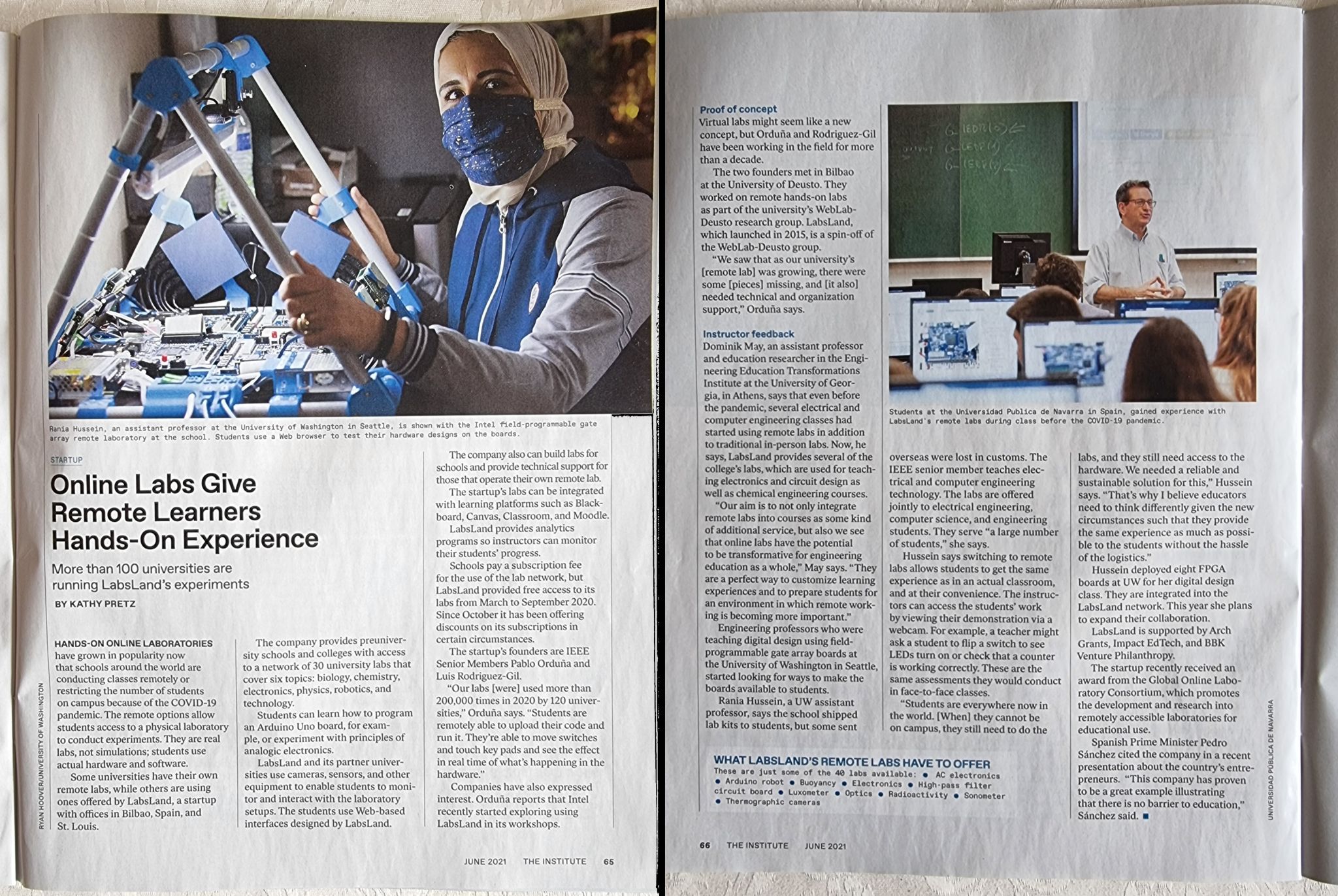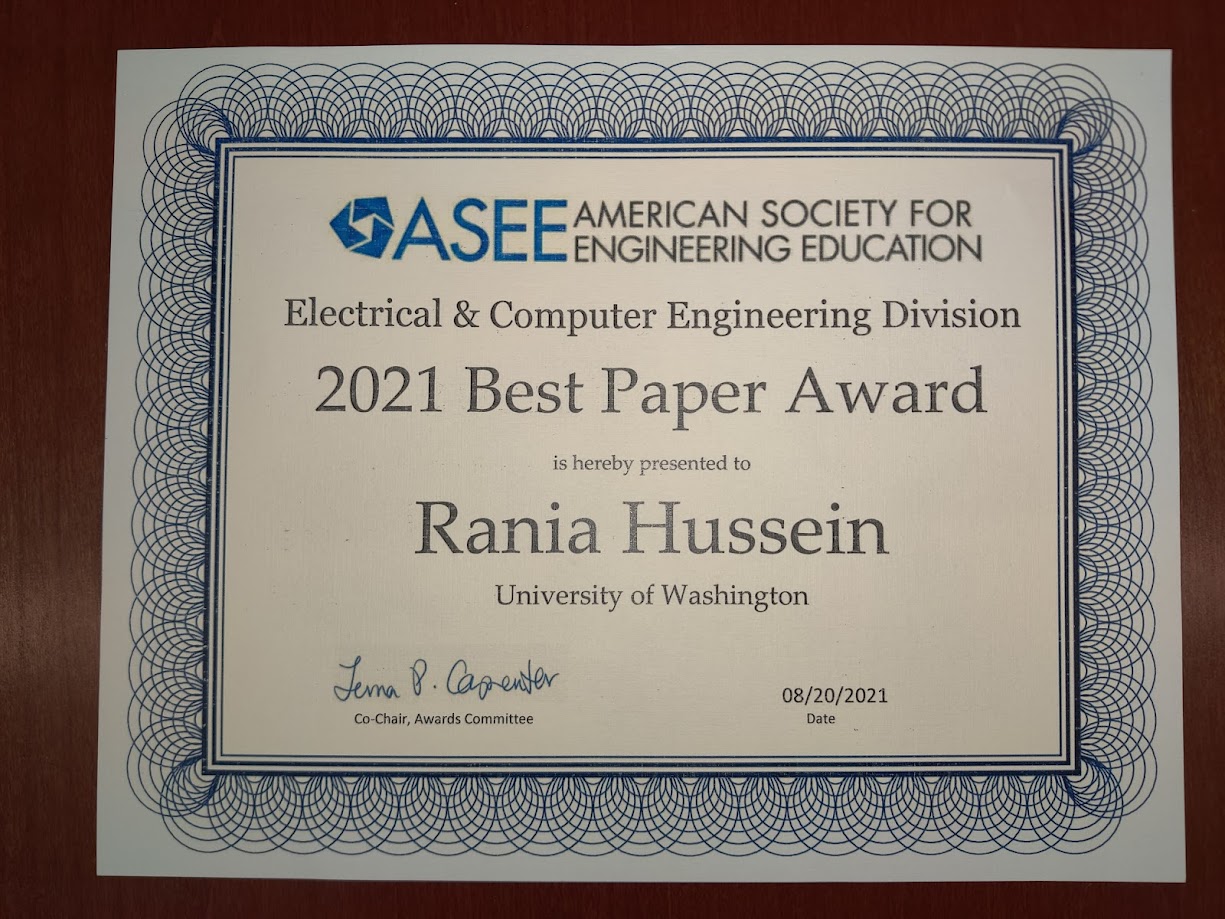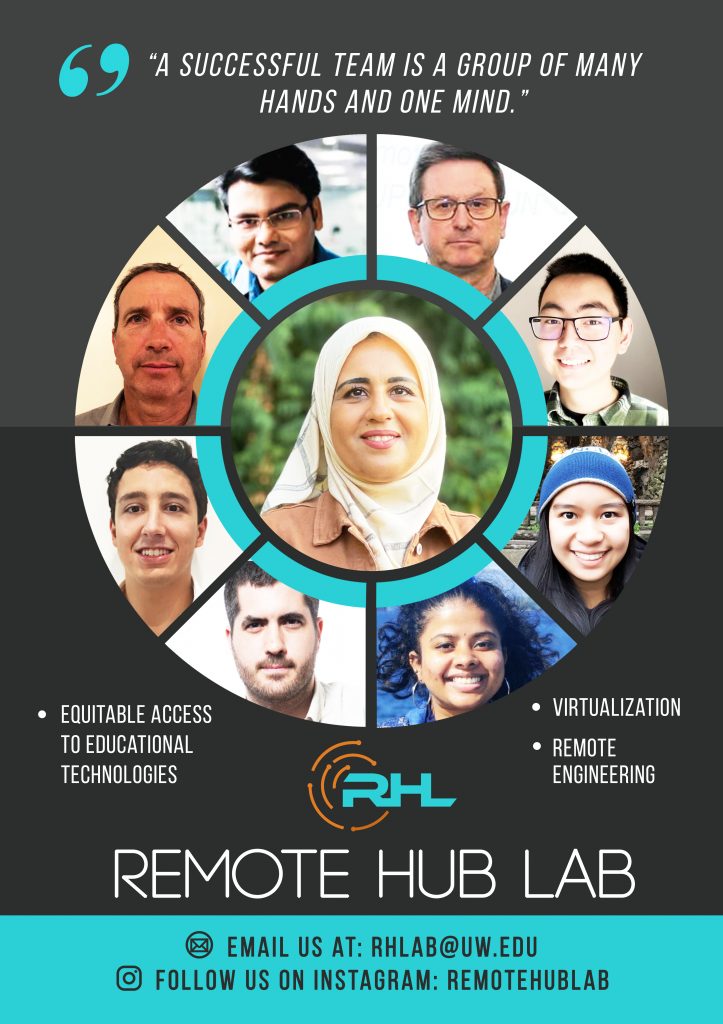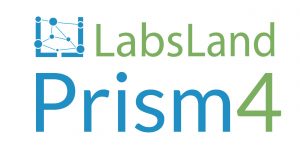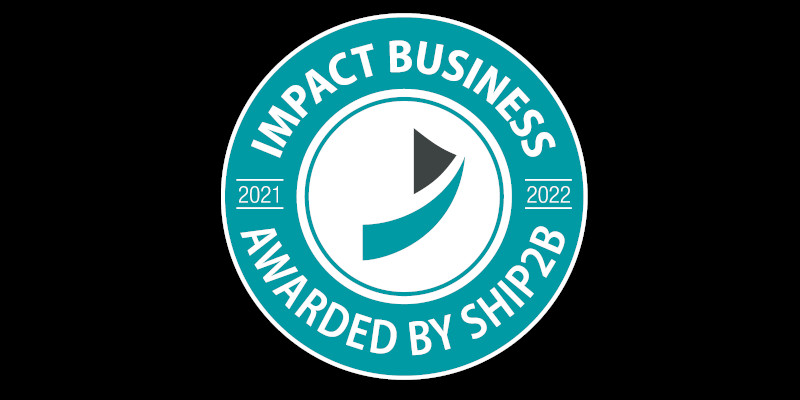During the year 2021, LabsLand carried out a remote laboratory installation at the University of Washington. In this deployment, four types of remote laboratories were deployed at UW:
- Intel FPGA DE1-SoC (some were previously installed in 2020).
- Texas Instruments boards
- Arduino boards
- Arduino robots
The University of Washington, and in particular Prof. Rania Hussein, started collaborating with LabsLand in 2020. First, UW started using remote laboratories of the LabsLand network (described in previous articles), and then joining the network by deploying LabsLand remote laboratories that they installed in the UW in a deployment in 2020 that was featured in the IEEE Spectrum magazine of June 2021 (also featured in 2020 in the digital version). With the collaboration of LabsLand, the 5 universities contributing to the FPGA network (UPNA, UW, UMich, UNIFESP, Monash Malaysia) obtained the GOLC Award 2021, in the remote laboratory category.
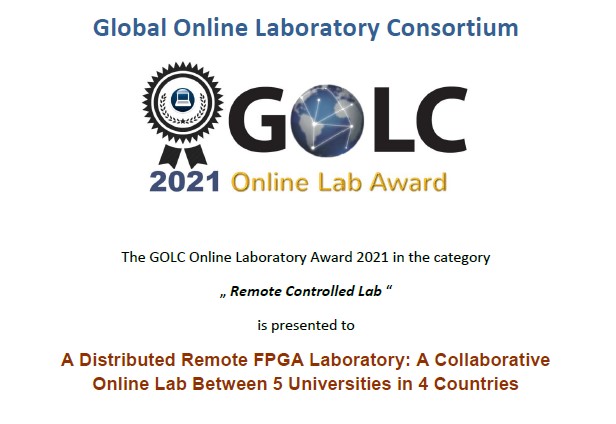
Additionally, Prof. Hussein was not only a user of these technologies but a researcher as well. Already back in 2020, the University of Washington contributed the breadboard functionality in the FPGA remote laboratory, and published in the REV2021 conference an article entitled “FPGA Meets Breadboard: Integrating a Virtual Breadboard with Real FPGA Boards for Remote Access in Digital Design Courses” explaining this research. Prof. Hussein was also key in the addition of certain features of the FPGA (e.g., introducing VGA, audio, or the first virtual peripherals such as keyboard and joystick) in the remote laboratory.
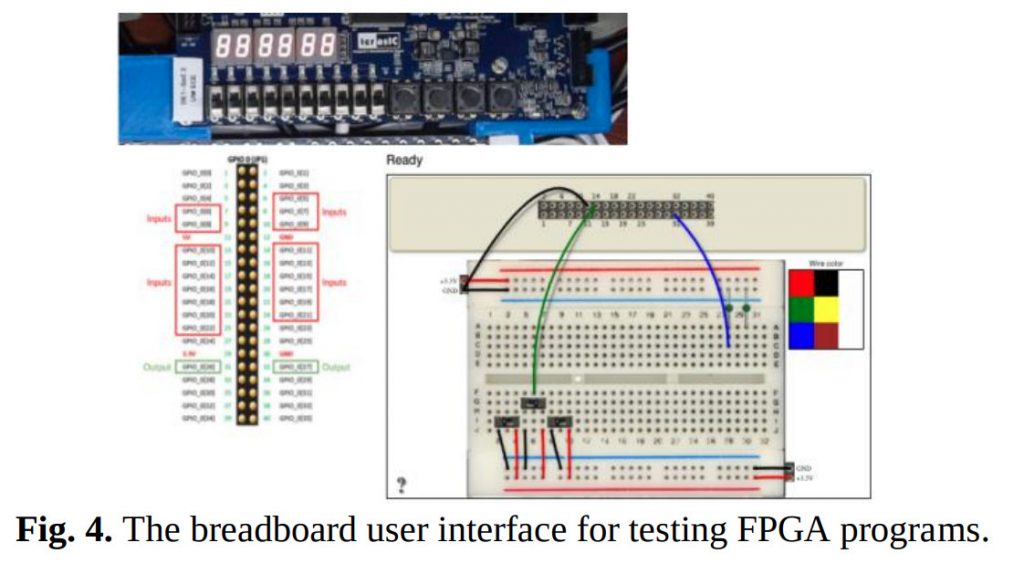
After deploying equipment in 2020, the University of Washington published in the ASEE Annual Conference the article “Remote Versus In-hand Hardware Laboratory in Digital Circuits Courses”, where Prof. Hussein and Prof. Wilson analyzed the usage of remote laboratories compared to the usage of traditional hands-on-lab laboratories before the pandemic, concluding that “students performed better in terms of overall scores, understand skills, and analyze skills when presented with remote access to laboratory hardware than when having that hardware in hand”. And this article obtained the Best Paper Award in the ECE Division at the conference. At the same conference, Prof. Hussein and LabsLand CEO Dr. Pablo Orduña gave a talk on remote laboratories sponsored by Intel available here.
As the efforts at the University of Washington are increasing the research in the field of remote laboratories, Prof. Rania Hussein created a research group called Remote Hub Lab (RHLab), in which LabsLand founders and LabsLand network members participate. The mission of the group is to provide equitable access to educational technologies.
Already in March 2022, the Remote Hub Lab has obtained the ECEDHA Innovative Program Award 2022 for the implementation of the technology in the classroom.
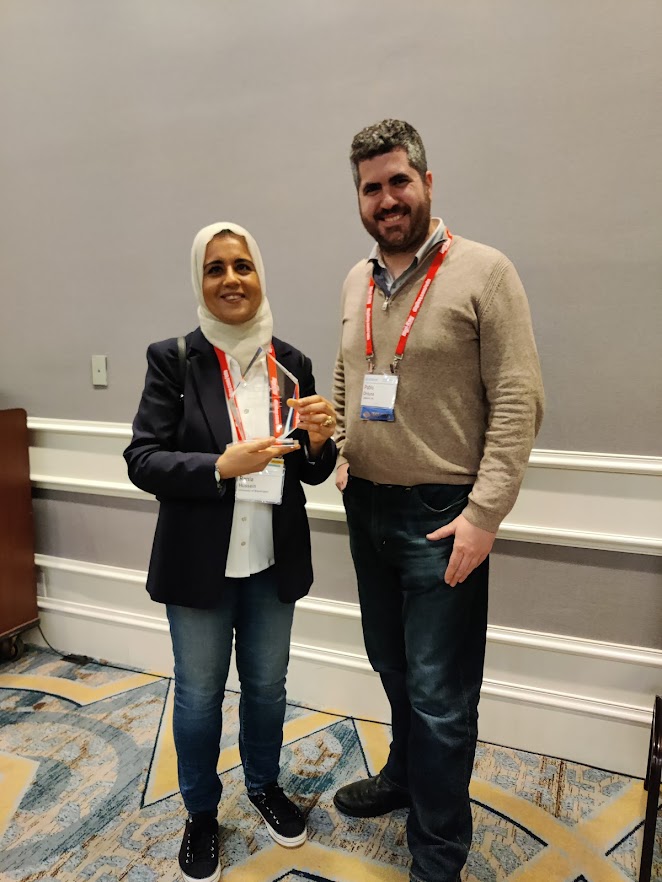
Finally, the Remote Hub Lab, in collaboration with LabsLand, already has two projects:
- RHL-Beadle: a set of open-source contents funded by Intel and developed by the University of Washington for Intel FPGA remote laboratories
- RELIA: an NSF-funded project addressing a new type of open-source remote laboratory based on remote laboratories, starting in 2022.
Given how the Remote Hub Lab has moved from scratch to one of the world-leading institutions in the field of remote laboratories, we expect that we will have to write many more posts on RHLab <-> LabsLand collaborations in the future 🙂

